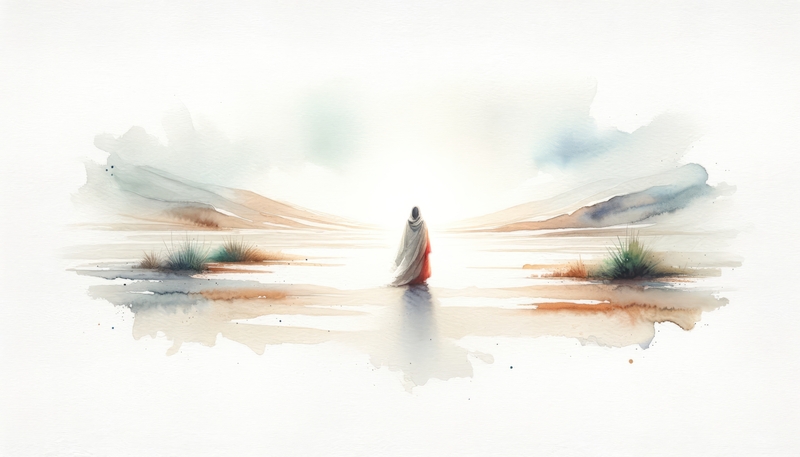Life can be tough on so many levels, but never as tough as we are on ourselves. Whether it’s a glance in the mirror that dissolves into a look of dissatisfaction or second-guessing how we performed in the business meeting we just finished, we tend to be our own worst critic. We will spend hours replaying scenarios in our heads to find where we went wrong or what we could have done better, all to no avail.
Have you ever considered our reaction when five people say wonderful things about us, and one says one negative thing? We will obsess over the negative comment, forgetting or disbelieving the five other positive comments. The bottom line is that no matter how we try to ignore criticism or failure, self-inflicted or otherwise, until we start seeing things differently, we will create a behavioral pattern that is difficult to live with or change.
But what if we placed ourselves beneath God’s gaze? What if we tried to look at things through His eyes? I don’t mean literally, but we do have precedent to draw upon to begin the process. The Bible tells us we were made in the image of God. I don’t believe this is a literal statement of outward form, for if we are all made in His image, why are we all so unique in appearance? Instead, I believe we have a spark of the divine in our DNA, which, in our triune makeup of spirit, mind, and body, belongs not to us but to God. It is His image, His imprint on us and in us. This connection creates the ability to see things from a different perspective.
Imagine Jesus is the perfect example of how to interpret the spoken word. Like Him, we are created with a semi-divine capacity, enabling the spoken word to affect everything: mind and body. Fielding terrible insults with hatred hurled at Him, He managed the persecution, remembering His Father’s teaching and seeing Himself through His Father’s eyes. He did not waste time judging himself, He chose to believe who He was and the purpose that gave Him. But what about His internal thoughts? Surely, in His humanity, Jesus suffered the pangs of self-doubt. If not, we would be reticent to believe He was and is an example to follow.
Imagine what Jesus might have felt within as He saw the disappointment in His followers’ eyes when He did not live up to their understanding of what His Kingdom was truly about. Imagine the questions He might have silently entertained as He struggled to disclose everything to people who had not yet fully realized their potential. Jesus separated Himself many times to spend time alone being ministered to by His Father. It would be easy to believe that part of that time was spent just sitting beneath God’s gaze, drinking in all its goodness.
By contrast, we sit replaying the audio or video recordings in our head of the situation, examining it from our perspective. As we spend time judging ourselves, we create more trouble. Why? Because from a position of despair, we certainly judge ourselves without mercy. We become narrow-minded and fixated on the negative things. We speedily head down the rabbit hole of disgust and disappointment, even bitterness. The louder the harmful narrative in our head becomes, the more difficult it is to see God’s free and constant mercy applicable to the situation. We forget who we are in Christ.
I attended a conference where Bishop Malcolm Smith of Unconditional Love Fellowship made a simple and powerful statement of revelation into Christ’s life. He said:
“He who was eternally God, fully realized manhood and when He had totally accomplished His Father’s purpose as a man, He was a man who totally understood Godhood!”
Jesus gave us an example to follow as humans in relationship with God. He mastered the art of not living by what He saw but lived by what He knew. In His time on earth, He authored the blueprint of what we have available to us being made in His image. We are obedient to our design when we follow His example.
It is important to remember we deserve mercy for ourselves as much as others. When we stop looking at ourselves with our own eyes, we begin to see less of our failure and more of our purpose, which, in turn, allows us to understand how to defeat negativity swiftly. As we begin to live from our true purpose, we understand how important we are in our sphere of influence. We all have a vital role to play in the ever-unfolding destiny of this world. When we realize we have the power to ignite the spark of the divine within us, we, too, can also rest in the beauty and life-sustaining power under God’s gaze.
Please tell me what you think by clicking the link to the Contact Page here


